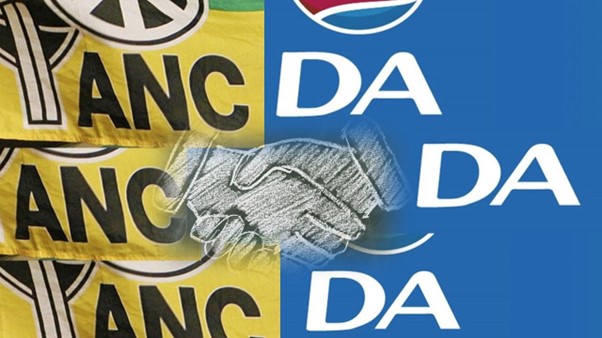THE DEMOCRATIC ALLIANCE’S STRATEGY AND ITS IMPACT ON SOUTH AFRICAN POLITICS
The political landscape in South Africa is undergoing rapid and significant changes, characterized by shifting alliances and unexpected proposals. Amidst this, the Democratic Alliance (DA) has been at the forefront of controversy due to its aggressive tactics and polarizing political moves.
Initially, the DA’s approach in pursuing a coalition with the African National Congress (ANC) has sparked significant debate. Accusations of insensitivity and arrogance have emerged, with some critics and observers describing the DA’s tactics as dismissive and exclusionary towards other political entities. This strategy risks alienating potential allies and could lead to a fragmented opposition, which could destabilize the broader landscape of democratic governance in South Africa.
Further complicating matters, critics argue that a potential rise to power of the DA might herald a shift back to policies supporting minority races and big businesses. This is a concerning prospect for many, as it could potentially undo the progress made in post-apartheid reforms aimed at redressing historical injustices. There is a pervasive fear that such changes could disrupt affirmative action policies and socio-economic reforms, thereby recalibrating the distribution of economic opportunities away from the black majority.
Amid these concerns, John Steenhuisen, leader of the DA, proposed a coalition with the ANC, which he claimed could “save South Africa.” This proposal came shortly after the DA had sharply criticized President Cyril Ramaphosa and his party’s governance as a tragedy for the nation. This sudden shift from condemnation to collaboration raises suspicions about the DA’s ultimate motives, suggesting a strategic plan to consolidate power rather than genuine cooperation for national benefit. Analysts speculate that this coalition could lead to significant internal shifts within the ANC, potentially even suspending Ramaphosa in support of leadership more amenable to the DA’s policies.
During these developments, President Cyril Ramaphosa finds himself at a critical juncture. He faces the choice of either rallying his support base to reinforce his political position or potentially succumbing to the pressures that seek to diminish his influence. If Ramaphosa does not act decisively to organize his own party and create alliances that genuinely represent the interests of the black population, he risks showing weakness. This could lead to a transfer of power to forces potentially less sympathetic to the needs and rights of the majority, leaving him politically marginalized.
As South Africa navigates these turbulent political waters, the decisions made now by its leaders will profoundly influence the nation’s trajectory, determining whether it moves towards greater inclusivity and justice or regresses to a more divided and unequal society.
